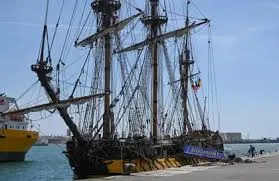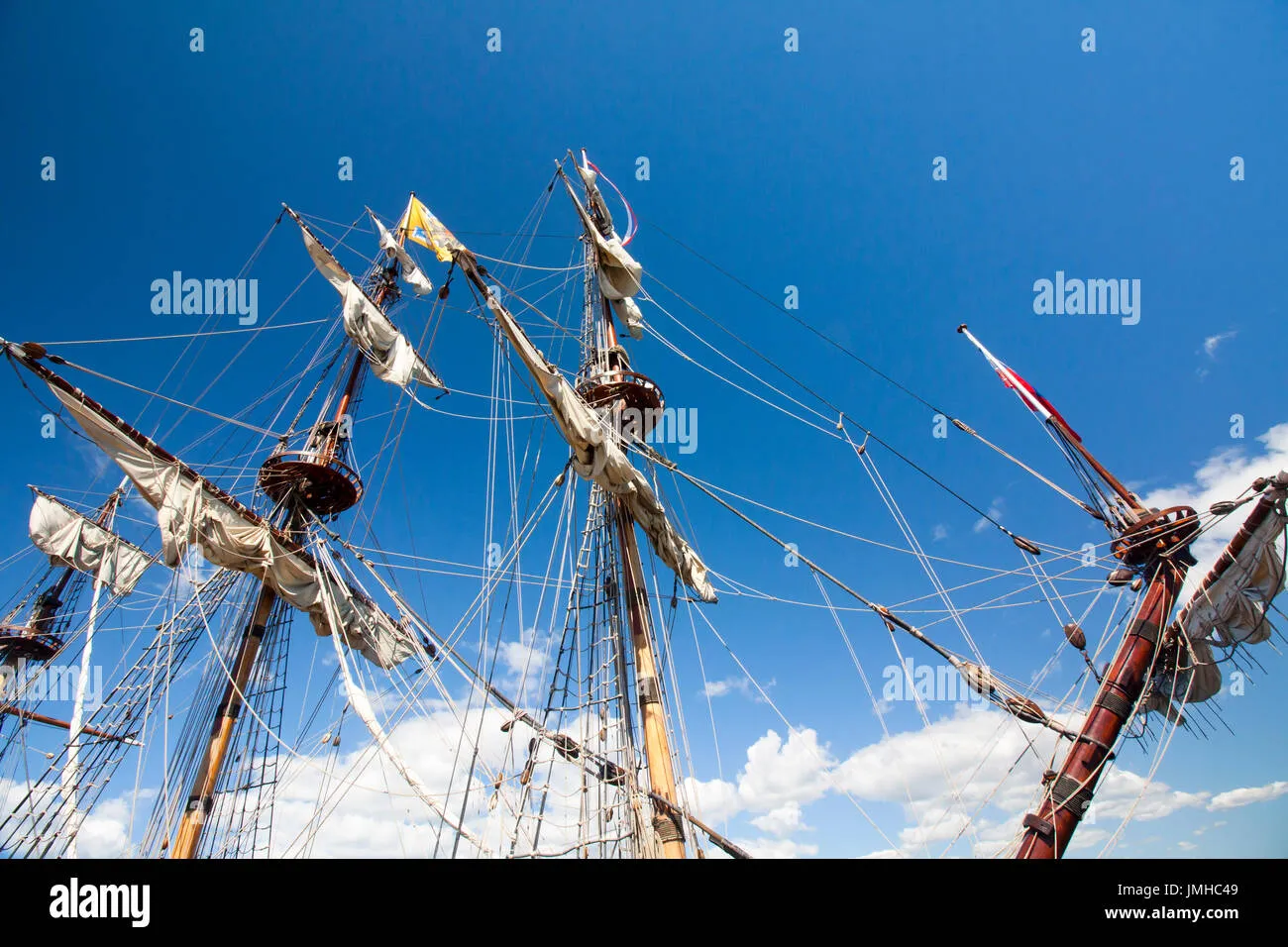Replica of Russian Warship Docks in France Despite Sanctions
In a surprising move, French authorities have allowed the Russian ship Shtandart, a replica of a historic warship, to dock in France despite strict European Union sanctions aimed at punishing Russia for its conflict in Ukraine.

The Shtandart arrived at the port of La Rochelle on France’s southwest coast to refuel and resupply on August 5-6, as reported by AFP on August 7. This docking occurred despite an EU ban on Russian ships entering European ports due to sanctions related to the Ukraine conflict.
The Shtandart, a three-masted vessel measuring 34 meters in length, was built in 1999. It is an exact replica of the original 18th-century warship that served in the Baltic fleet during the reign of Peter the Great.
Before arriving in La Rochelle, the Shtandart had been denied entry to the French port of Brest and was barred from participating in France’s annual maritime festival in Brittany in July. Despite these restrictions, the ship managed to secure entry into La Rochelle for technical reasons deemed necessary by maritime authorities in the Charente-Maritime province.
The ship docked on the morning of August 5 and departed at noon on August 6. Its next destination remains unknown. The Shtandart’s captain and owner, Vladimir Martus, shared in an Instagram video that the ship was preparing to leave La Rochelle after refueling and resupplying.
Before the sanctions, the Shtandart was a popular participant in European maritime festivals, primarily used for training and excursions. Currently, the ship flies the flag of the Cook Islands instead of the Russian flag. Critics accuse Martus of having ties to Russian President Vladimir Putin, a claim he denies.

Over the past 25 years, the Shtandart has hosted 10,000 passengers and participated in approximately 200 different festivals, underscoring its cultural and historical significance in the maritime community.
This event highlights the complexities and challenges of enforcing international sanctions while balancing cultural and historical considerations.



